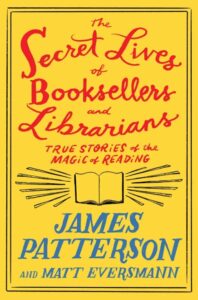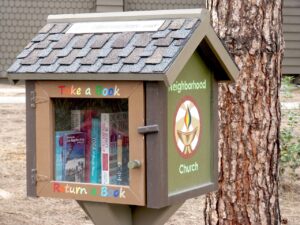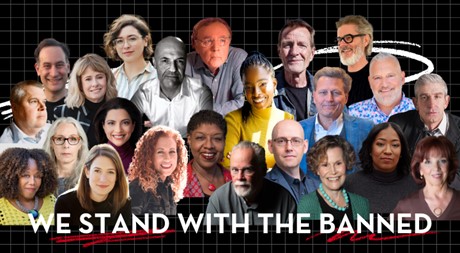Romance Writers of America files for bankruptcy amid bitter racism battle
Group says membership crisis means it cannot pay conference contracts as top writer condemns RWA’s ‘retreat from commitment to equality’
Keep a list of research sites you never heard of:
- Academic Resource Search. More than a billion sources: encyclopedia, monographies, magazines.
- A search for the contents of 20 thousand worldwide libraries. Find out where lies the nearest rare book you need.
- Access to more than 10 million scientific documents: books, articles, research protocols.
- A library of scientific bioscience journals published in developing countries.
- Volunteers from 102 countries have collected almost 4 million publications on economics and related science.
- An American state search engine on 2200+ scientific sites. More than 200 million articles are indexed.
- One of the most powerful researches on academic studies texts. More than 100 million scientific documents, 70% of them are free
Digital reading soars in Seattle, creating problems for local libraries by Clare McGrane and Patricia Murphy April 23, 2024
Seattle residents make the city #8 in the world for their love of ebooks and audiobooks. That’s a problem for the libraries because of the cost of the electronic versions. While print books are more expensive for consumers to buy directly, it’s the opposite for libraries. One librarian said libraries are charged anywhere from three to ten times more for ebooks than consumers.
 The Secret Lives of Booksellers and Librarians
The Secret Lives of Booksellers and Librarians
Their stories are better than the bestsellers
Available where good books are sold.
As seen on Facebook: Posted by Marianne Friedman-Polonsky
How I Defeated the Book Bandits Who Emptied My Little Library: (Los Angeles)
Book bandits are the equivalent of someone showing up at a potluck buffet and taking all the food, leaving nothing for other guests. They are not partaking in the shared experience, they’re depriving everyone of a community pleasure. Measures were taken, and the battle of the book bulge was won.
Here are my three recommendations; they absolutely work. The bandits never came back after systematically emptying my library of everything as soon as I refilled it several days in a row.
 Black out the bar code on the back of the books. It prevents scanning and resale. Nothing works without a bar/QR code nowadays.
Black out the bar code on the back of the books. It prevents scanning and resale. Nothing works without a bar/QR code nowadays.- Stamp the pages side of the book. I got my stamp on Amazon. The custom text read “LITTLE FREE LIBRARY, NEVER SOLD, ALWAYS SHARED.” Used books stores refuse to buy back books from LFLs, so the stamp prevents that resale.
- Install a real or fake camera. Fake ones cost $7 for two on Amazon. Real ones with Bluetooth that links to your phone are available for around $25, and you get the added pleasure of seeing dogs walking and neighbors waving.
Three of my neighbors’ LFLs were also targeted. I passed on my recommendations, and all the little libraries are happily serving the community again.
Please share the recommendations, and let’s all continue to share books with neighbors and passersby.
Who Gets Paid? The Writer!
Don’t get sucked into a contract with a vanity or hybrid publisher! Money should flow one way: to the writer. Here are tips to help make a decision. Remember, organizations like the Authors Guild have someone who can look over the contract before you sign and let you know if it’s safe or not.
Looking at a small press for your book? Here are key things to check off your list from Julie Artz via Jane Friedman’s site. Make your list. Check it twice!
18 Ideas for a Successful Book Launch
How to get your book into bookstores from Sandra Beckwith of Build Book Buzz.
To Substack or Not to Substack That Is the Question. Is it better to newsletter? Or both?
Covers sell the book, but how do you know if your cover is a winner? Here’s a site where people can vote for their favorite covers. It’s fun, and it could help you decide what your cover should be.
From Publishers Weekly: Last year, the Indie Author Project and Ingram Library Services (part of Ingram Content Group), partnered with Lyrasis on a joint initiative to gain broader insights into the evolving relationship between independent authors and public libraries across the United States and Canada. Central to the initiative is a survey the collaborators conducted from November 15 to December 29, 2023. The survey, provided to 320 library staff members across the U.S., posed a brief series of questions relating to the value they assign to circulating self-published books.
FINDINGS: “This data reveals that libraries are increasingly recognizing the critical role indie authors play in the future of their collections.”
The results heartened indie author advocates. When asked ‘‘How important is it to include indie publications in your library’s collection?” Eighty-two percent of respondents stated it was either extremely important, very important, or somewhat important. Ninety-four percent of the surveyed library professionals stated they would be either extremely interested, very interested, or somewhat interested in purchasing books from local indie authors in print if they were curated for quality by professional editors, while ninety-three percent said that they would be interested in showcasing local indie author’s books if curated for quality by professional editors. When asked to name the biggest obstacle to adding indie content to their library collections, fifty-seven percent of participants reported the greatest obstacle is determining the quality of indie titles without input from reviews. Other factors included challenges in discovering worthy titles and purchasing from individual vendors.
Another Win Against Book Bans in Washoe County, Nevada! Thanks to EveryLibrary
Stories Save Lives
Get the latest updates on how PEN America is pushing back against book bans and fighting for the inclusion of diverse voices in our libraries and schools.

